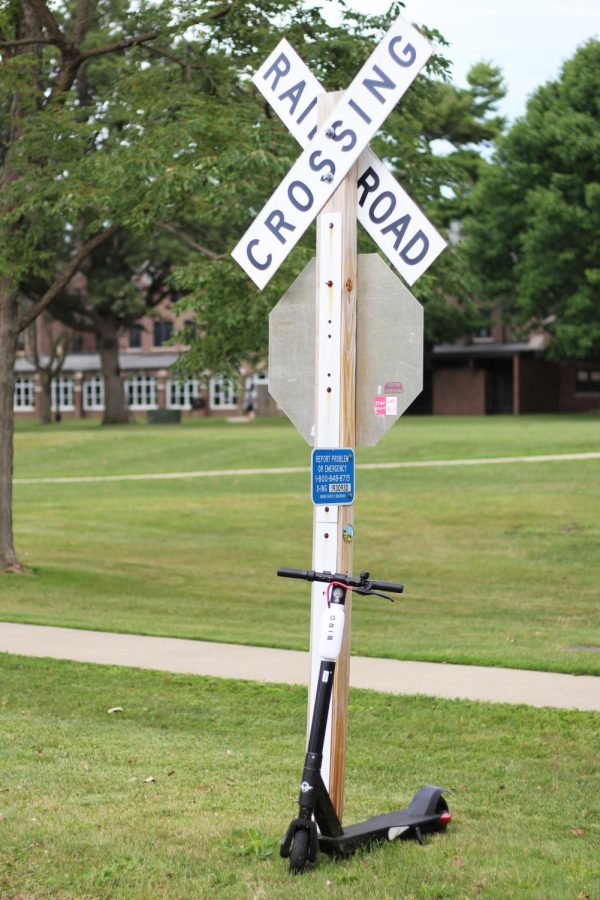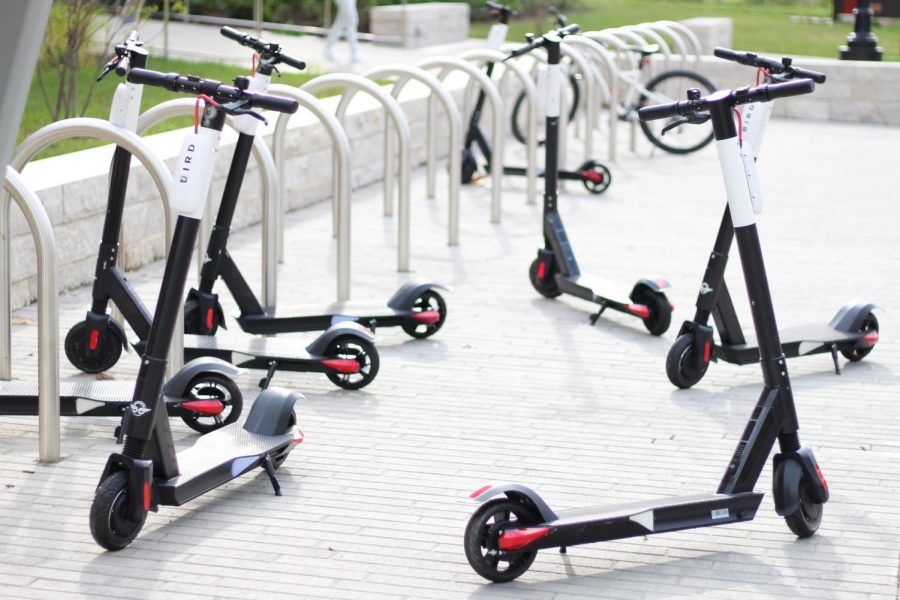Bird Scooters terminates contract with city of Grinnell
All Bird scooters are scheduled to be removed from Grinnell by the end of November.
November 21, 2022
Grinnell’s flock of Bird scooters is flying south, for both the winter and the foreseeable future, after the mobile scooter company terminated its agreement with the city of Grinnell in October.
Bird scooters arrived in Grinnell in July 2021, slated for a one-year trial period. In May of 2022, the city of Grinnell entered into an agreement with Bird, allowing the company to operate on city streets. The contract included a clause allowing either party to terminate the agreement at any time.
In October 2022, Grinnell Building and Planning Director Tyler Avis reached out to Bird to express the city’s concerns over storage and rider safety and to explain that “it was likely that the city would not look to renew their agreement in the coming spring.” Bird responded by terminating the agreement between the two parties, effective Nov. 14, 2022.
In September 2021, the S&B reported on the challenges the scooters posed to the town — without reliable charging stations, the scooters often lost battery in inconvenient places, blocking sidewalks on campus and downtown. Additionally, while Bird requires all users to be over 18 years old, one of the most frequently observed demographics of users was middle-school aged students.
Avis also noted ongoing traffic-safety concerns, saying that there “have been some really close calls” for younger riders using scooters on busy streets like the four-lane West Street by Dollar General.

Unlike mobile operations with designated charging stations, the Bird system relies on a “flock manager” to charge the scooters overnight. Nevertheless, potential riders frequently found that the scooters lacked battery and were discarded haphazardly across town and on campus.
Students and community members reflected on a familiar pattern — while they initially found the scooters fun and useful, over time, they became impractical.
While Antonio Bernardo `24 enjoyed using the scooters during fall 2021, “the novelty kind of faded away after a while,” he said. “Half of the time they just wouldn’t work.” With the time required to launch the scooter, connect to the app and start the ride, “If I had walked, I’d already be there,” he said.
At Jay’s Deli, Lindsay and Lizzy, two Grinnell residents, said that while they used the scooters when they first arrived, Bird’s fees made using the scooters routinely less attractive.
The scooters are slated to be removed from Grinnell by the end of November, said Avis.
“Oh thank God,” said Grace Kurtz `25 upon hearing that the Bird fleet is leaving the city. “They’re annoying. They’re always in the way.”
“I think it’s good to have options,” said Henry Coen `25, but he noted that he has seen younger children riding scooters far more frequently than college students or adults, Bird’s over-18 target demographic.
Ellie Seehorn `25, a student access leader, echoed Avis’ concern about scooters and accessibility issues from September 2021. While the scooters are intended to be stored upright in designated areas, such as near the 8th Avenue Humanities and Social Studies Center entrance, they have often been left strewn across walkways, in the grass beside the sidewalk or even on the train tracks.
Seehorn said, “When left in unreasonable spots, in a way that obstructs, they can have real impacts on people using crutches, wheelchairs or with vision impairments.”



















































